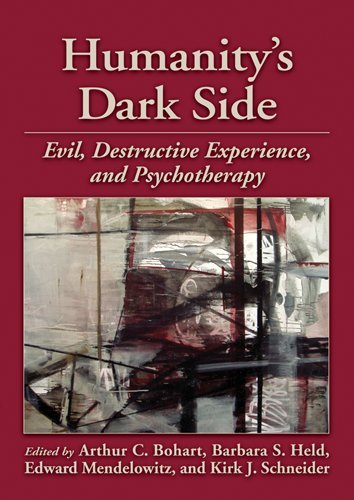Humanity’s Dark Side: Evil, Destructive Experience, and Psychotherapy
Human destructiveness can take many forms, from the everyday “little” ways in which we hurt each other to atrocities like genocide and slavery. The capacity for such destructiveness is often referred to as humanity’s “dark side.” Although an abundance of literature considers possible origins of humanity’s dark side, most of it ignores how psychotherapists conceptualize
Human destructiveness can take many forms, from the everyday “little” ways in which we hurt each other to atrocities like genocide and slavery. The capacity for such destructiveness is often referred to as humanity’s “dark side.” Although an abundance of literature considers possible origins of humanity’s dark side, most of it ignores how psychotherapists conceptualize and deal with the dark side in therapy.
In this book, prominent writers on psychotherapy present different, sometimes opposing views on humanity’s dark side and consider how these views impact their clinical practice:
Must therapists address the dark side in order to help people grow constructively? Or can they work to develop clients’ positive features without addressing the dark side at all? How does one help a victim of “evil” cope in therapy, and what if the client is a perpetrator?
Additional chapters address broader implications, such as whether psychology is a fundamentally moral enterprise, whether human negativity is necessarily immoral, and how organizations that strive for virtue might instead perpetuate vice. Complete with engaging case studies, this book will stimulate dialogue on important philosophical issues that impact clinical practice and broader social interactions.
Product Features
- Used Book in Good Condition







Comments